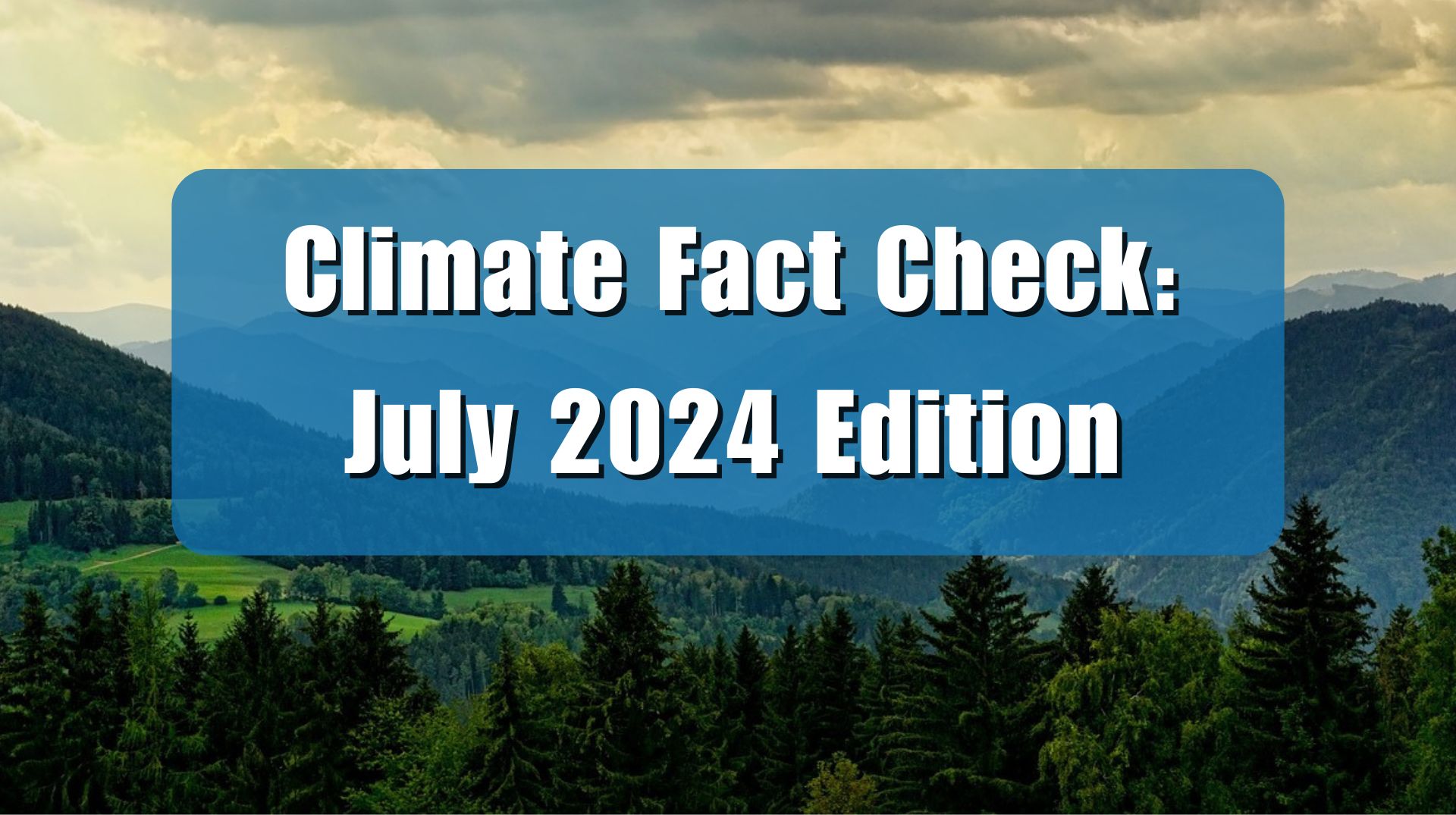USA Today followed the lead of several other mainstream media outlets claiming that during a recent summer heatwave in early July that the world, along with several U.S. states, have set new all time high temperature records. This is false. Although it has been hot, had the outlets bothered to check the historical records they would find none of the high temperatures hit in the states mentioned in recent days approached their historic highs.
The USA Today story, “Heat record after heat record will be broken in 2023. Here’s how to make sense of it all,” claims that all time high temperature records were broken in Florida, Arizona, and Texas. These claims mirror similar claims made by other media outlets, for instance, The Guardian and Axios.
“The Earth’s unofficial average temperature broke records last week,” wrote USA Today. “Daily high temperatures broke records in South Florida and Arizona. A Texas heat dome broke records in June and it was the planet’s warmest June on record.”
As has been discussed by numerous other analysts, here, here, and at Climate Realism, here, for instance, claims that the Earth set all-time temperature records last week were based on flawed computer model “reanalyses,” not hard data recorded by satellites, weather balloons, and surface stations. Computer models consistently project much hotter temperatures than those actually recorded.
Indeed, despite the headline grabbing attention given to the asserted record setting global temperatures, when USA Today asked the National Oceanic and Atmospheric Administration about the record setting claims, the agency said surface temperature data did not confirm that global high temperatures were broken in early July.
Although high temperatures for particular dates may have been broken in some cities in the states discussed in the last week, there is no evidence that long-term climate change is to blame for a single date’s or week’s spike in temperatures, especially when there are more likely causes for the recorded temperatures.
The earth has recently entered an El Nino phase, a natural weather pattern, that the National Weather Service points out causes a widespread increase in surface temperatures. In addition, the Atlantic Ocean is simultaneously experiencing a period of extremely low North Atlantic Oscillation, which also drives warmer sea surface temperatures.
Also, each of the cities or areas where it is claimed records were broken have temperature stations badly compromised by the urban heat island effect (UHI). Tremendous population growth has occurred in the locations discussed in the various stories since the previous records were set. For example, San Angelo, Texas was among the areas that the media is reporting broke its all-time high for a date in early July, with a temperature of 114℉, breaking the previous record of 111℉, set first in 1933 and tied repeatedly since then, in 1943, 1944, and 1960 (the latter three years during a time when the Earth was cooling modestly). What the stories neglect to mention, however, is that since the prior record was set and tied, San Angelo has grown substantially, with more attendant artificial heat sources. From the early 1930s to the present San Angelo’s population has grown approximately 294 percent, and since 1960, the last time the previous temperature record was tied, San Angelo’s population has grown more than 69 percent.
It is worth remembering that Texas’s all-time record high temperature, of 120℉ was recorded in two locations both with populations then and now of fewer than 10,000 people: Seymour in 1933 and Monhans in 1994. Both locations have a fraction of the population of San Angelo. San Angelo’s recent high doesn’t seem that dramatic in context.
Population has grown even faster and is much larger in Florida and Arizona, two of the nation’s fastest growing states. For example, whereas USA Today vaguely references daily high temperature records being set in Arizona, The Guardian gives some details, pointing out that Phoenix may have tied it second hottest day on record of 121℉, a record set in 1995. Yet, since 1990 Phoenix’s population has increased more than 67 percent. For Arizona as a whole, the current high temperature record, of 128℉, was set in 1994 at Lake Havasu City. In 1990, Lake Havasu City’s population was just 2.5 percent of Phoenix’s and despite more than doubling in size since then it is still only 3.4 percent of Phoenix’s size. In sparsely populated Lake Havasu City, it is exceedingly unlikely that the UHI compromised Arizona’s all-time high temperature record. By contrast the UHI almost certainly factored into Phoenix’s recent non-record setting but high temperature readings.
And as for Florida, its record temperature for heat, 109℉, was set more than 90 years of global warming ago on June 29, 1931 in Monticello, then under 2000 people. That’s 19 degrees above the temperatures in Daytona Beach in early June that USA Today expressed such concern about.
Have and will some high temperature records be set this summer? Almost certainly. It’s almost always the case that during the summer new temperature records are set somewhere, on some date. This will be especially likely this year with the combination of existing oceanic circulation patterns in place. However, because there is no long-term trend in an increasing number of heatwaves or in consistently record setting temperatures, climate change cannot be blamed for any new records.
















